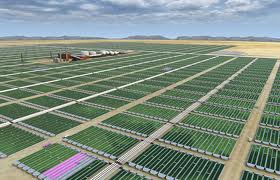You could run a car and even an airplane using fuel made from algae, but it will take on the order of 10 years before the technology is mature enough to make a dent in petroleum use, according to an academic study.
The Energy Biosciences Institute at the University of California at Berkeley very recently released an analysis of the state of the algae biofuels industry and projected some of its future needs.
Its overall conclusion is that a significant amount of research and development is needed, even with the progress of the many algae biofuel companies now active in the field. Specifically, more biology research is needed focused on cultivating algae strains and genetic engineering to boost algae growth rates. Testing facilities are also needed to gain expertise in converting lab-scale research into production systems.
“It’s clear from this report that algae oil production will be neither quick nor plentiful–10 years is a reasonable projection for the R&D to allow a conclusion about the ability to achieve relatively low-cost algae biomass and oil production,” according to the report’s authors.
The potential of microalgae for making liquid fuels has led to the creation of hundreds of companies in the field and many research efforts. In addition to being a replacement for petroleum oil, algae consume carbon dioxide, can be used to treat wastewater, and can be grown in different environments in both fresh and salt water.
There are a handful of efforts which are close to pilot-scale production of fuels, including Sapphire Energy and Cellena Oil, which is backed partially by Shell Oil, the report notes. Another high-profile algae company is Solazyme, which has a unique fermentation-driven process for making oil and other chemicals, rather than the open pond and bioreactor approaches addressed in the report.
But the total output from experimental open-pond facilities over the past year has been only a few tons of biomass and less than a hundred gallons of actual algae oil, the reports says. The primary problem is the costs. Making animal feed as a supplemental product after the oil is harvested from algae does not dramatically lower the costs, according to the Energy Biosciences Institute.
[ad]
“Even with low capital charges, it is not possible to produce microalgae biofuels cost competitively with fossil fuels or even other biofuels without major advances in technology,” it concludes.
Even with its sobering assessment of the state of algae biofuels, the institute argues for continued research and development because algae biofuels can make a “vital, even if modest, contribution to the US biofuels industry.” The minimum research program should be five years, it said.


